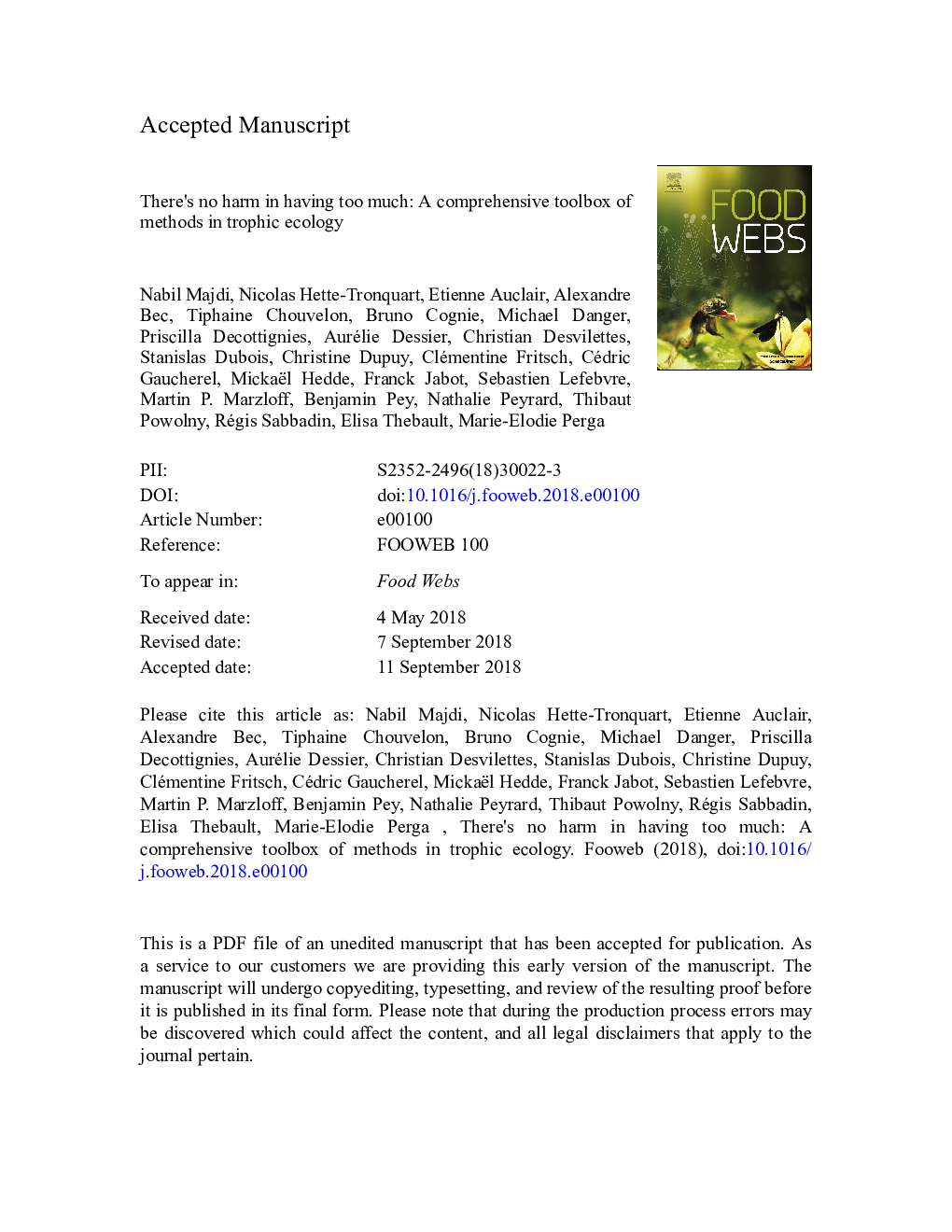| Article ID | Journal | Published Year | Pages | File Type |
|---|---|---|---|---|
| 11028602 | Food Webs | 2018 | 82 Pages |
Abstract
Trophic ecology is the study of feeding interactions and food acquisition by organisms. It includes the causes and consequences of those behaviours at all levels of biological organisation. As a field of research, it crosses many disciplinary boundaries and provides knowledge that is pertinent to many other areas of ecology. Here we list and categorise the methods available to trophic ecologists whose toolbox has broadened considerably in recent years. They encompass empirical and numerical approaches with focus ranging from molecules to ecosystems. We further examine the relationship of each method to features such as the scale of observation (from microbes to largest organisms) and organisational level (from individuals to ecosystems) as well as the ecological question the method is capable of answering (from detecting predator-prey relationships to studying implications and consequences at different scales). Our survey reveals a very wide range of methodologies, each more-or-less appropriate for a particular line of research. It also identifies deficits, for example, trophic interactions at microscopic scales, for which empirical methods have hardly been used, as well as trophic models that have failed to consider fluxes at the ecosystem scale. Furthermore, we note that the combination of methodologies remains under-exploited despite great opportunities to solve complex ecological questions and to foster the emergence of new insights and hypotheses regarding organism, population and/or ecosystem properties.
Related Topics
Life Sciences
Agricultural and Biological Sciences
Agricultural and Biological Sciences (General)
Authors
Nabil Majdi, Nicolas Hette-Tronquart, Etienne Auclair, Alexandre Bec, Tiphaine Chouvelon, Bruno Cognie, Michael Danger, Priscilla Decottignies, Aurélie Dessier, Christian Desvilettes, Stanislas Dubois, Christine Dupuy, Clémentine Fritsch,
